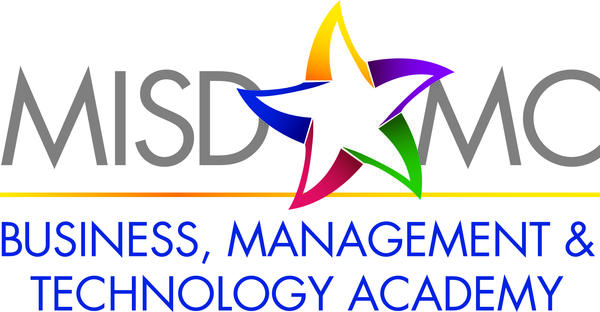Business Academy, Information Technology (IT)MISD Partnership
|
Computers and communication technology are a central component in everyday life. When systems that rely on technology fail, our lives tend to come to a rapid halt. As our society becomes more dependent upon technology and the information systems that keep us connected, the information technology sector continues to experience a demand for technically savvy people to provide reliable computing solutions for an interconnected society.
|
|
Industry Outlook and Program Overview
The U.S. Department of Labor reported in its 2017-18 Bureau of Labor Statistics Occupational Handbook that “employment of computer and information technology occupations is projected to grow 13 percent from 2016 to 2026, faster than the average for all occupations.” Better than average expected job growth and a higher than average median annual wage forecast indicates that people with information technology skills will be poised for successful future careers.
The Information Technology Program is designed to provide students with the foundational knowledge and skills needed to prepare for a career in the IT industry. Students will be introduced to functional areas of information and communication systems including computer hardware, security principles, software applications, and network technologies. Introductory courses in these topics are designed to expose students to various skill sets and aptitudes required for careers in the IT industry.
The Information Technology Program is a one-year program targeted to juniors and seniors who have a desire to learn and develop the basic skills necessary to further their education in the IT field. No prior knowledge of information technology or computer skills is required.
Successful students should expect to attend class regularly, participate in classroom discussions and complete hands-on learning activities related to course subjects. Students will be expected to complete research, projects, and assignments outside of scheduled class meetings.
Students will be expected to complete the CompTIA IT Fundamentals Certification Exam proctored by Midland College.
- Complete twelve college credit hours of coursework towards a certificate and/or degree in Information Technology from Midland College.
- Attain industry-recognized certification by successfully completing the CompTIA ITFundamentals Certification Exam
- Continued educational development and scholastic achievement at Midland College
ITSC 1301 - Introduction to Computers (3 credit hours)
Literacy of digital content and devices, Internet and social media, and programming concepts are introduced and explored. The student will learn to differentiate among operating systems, application, and utility software; create and enhance various document formats; and manage files and folders. Introduction to business productivity software suites using word processing, spreadsheets, databases, and/or presentation software.
ITSC 1325 - Personal Computer Hardware (3 credit hours)
An introduction to the components and technologies incorporated in modern computing platforms. Emphasis is placed on the identification of common computer-related tools and computing processes. Hardware platforms including desktop, laptop, networking, and mobile devices are explored. Troubleshooting tools and skills are introduced and developed as hardware topics are discussed.
ITSY 1300 - Fundamentals of Information Security
An introduction to information security including vocabulary and terminology, ethics, the legal environment, and risk management. Identification of exposures and vulnerabilities and appropriate counter measures are addressed. The importance of appropriate planning, policies and controls is also discussed
ITNW 1325 - Fundamentals of Networking Technologies (3 credit hours)
Students will learn what networks are and how they work with an introduction to network terminology, network theory, and troubleshooting fundamentals. Students will create and use network transmission media; explain the OSI model; study the characteristics of network topologies and protocols; explain the functions of a network operating system and distinguish between centralized, client/ server, and peer-to-peer systems; and identify the components deployed in modern network environments. Discussions and hands-on activities involve planning and installation of wired, wireless, and mobile network components.
MIDLAND ISD
Jeff Horner
Executive Director
(432) 240-1350
jeff.horner@midlandisd.net
Rachelle Taylor
Counselor for CTE
(432) 240-1353
rachelle.taylor@midlandisd.net
Olivia Reyes
CTE & Assessment Secretary
(432) 240-1531
olivia.reyes@midlandisd.net
Midland College
Dr. Son Mai
Dean, Business Computer, and Information SystemsTechnology Center, Room 150
(432) 685-4611
smai@midland.edu
Shawn shreves
Computer Information Systems Department Chair
Technology Center, Room 119
3600 N. Garfield Midland, TX 79705
(432) 685-4613
sshreves@midland.edu
Related Programs |
Related Resources |
Dual Credit
Application & Registration Steps
Thank you for choosing Midland College! If you are interested in taking classes at Midland
College for high school and college credit, learn more about our registration process.
